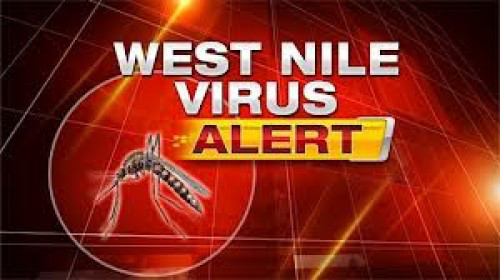

The town of Auburn Massachusetts is taking proactive steps to recent reports of a West Nile Virus positive mosquito sample found in the west quadrant of town and will be spraying help mitigate the threat.
The following message was sent to town residents about when and where spraying will be done:
The Massachusetts Department of Public Health notified the Auburn Board of Health that there was a West Nile Virus positive mosquito sample from a testing area in the West quadrant of Town. The risk level for West Nile Virus in Auburn was recently changed from low to moderate due to recent West Nile Virus activity.
In response to this notification the Board of Health has coordinated with Central Massachusetts Mosquito Control to spray the area of concern to help mitigate the threat of West Nile Virus. The spraying will be done Tuesday, July 10, 2018 after sunset.
Residents can follow these spray precautions:
You may close street facing windows and keep pets inside between sunset and midnight if possible to allow a more thorough application. Accidental exposures should not cause any significant concerns. No precautions are needed the day after the application, all residues will have evaporated.
For more information, visit the Town’s web site at http://www.auburnguide.com.
Additional information, including all WNV and EEE positive results, can be accessed from the Arbovirus Surveillance Information web page at http://www.mass.gov/dph/mosquito.
For questions regarding the spraying you may contact Central Mass Mosquito Control Project at 508-393-3055 or the Auburn Board of Health at 508-832-7703.
Signs and symptoms
Infection with WNV is either asymptomatic (no symptoms) in around 80% of infected people, or can lead to West Nile fever or severe West Nile disease.
About 20% of people who become infected with WNV will develop West Nile fever. Symptoms include fever, headache, tiredness, and body aches, nausea, vomiting, occasionally with a skin rash (on the trunk of the body) and swollen lymph glands.
The symptoms of severe disease (also called neuroinvasive disease, such as West Nile encephalitis or meningitis or West Nile poliomyelitis) include headache, high fever, neck stiffness, stupor, disorientation, coma, tremors, convulsions, muscle weakness, and paralysis.
It is estimated that approximately 1 in 150 persons infected with the West Nile virus will develop a more severe form of disease. Serious illness can occur in people of any age, however people over the age of 50 and some immunocompromised persons (for example, transplant patients) are at the highest risk for getting severely ill when infected with WNV.
The incubation period is usually 3 to 14 days.
In the absence of a vaccine, the only way to reduce infection in people is by raising awareness of the risk factors and educating people about the measures they can take to reduce exposure to the virus.
People should focus on the following:
- Reducing the risk of mosquito transmission. Efforts to prevent transmission should first focus on personal and community protection against mosquito bites through the use of mosquito nets, personal insect repellent, by wearing light coloured clothing (long-sleeved shirts and trousers) and by avoiding outdoor activity at peak biting times. In addition community programmes should encourage communities to destroy mosquito breeding sites in residential areas.
- Reducing the risk of animal-to-human transmission. Gloves and other protective clothing should be worn while handling sick animals or their tissues, and during slaughtering and culling procedures.
- Reducing the risk of transmission through blood transfusion and organ transplant. Blood and organ donation restrictions and laboratory testing should be considered at the time of the outbreak in the affected areas after assessing the local/regional epidemiological situation.

Preventing infection in health-care settings
Health-care workers caring for patients with suspected or confirmed WNV infection, or handling specimens from them, should implement standard infection control precautions.
more recommended stories
 Fentanyl Seizures at Border Continue to Spike, Making San Diego a National Epicenter for Fentanyl Trafficking
Fentanyl Seizures at Border Continue to Spike, Making San Diego a National Epicenter for Fentanyl TraffickingFentanyl Seizures at Border Continue to.
 Utah Man Sentenced for Hate Crime Attack of Three Men
Utah Man Sentenced for Hate Crime Attack of Three MenTuesday, August 8, 2023 A.
 Green Energy Company Biden Hosted At White House Files For Bankruptcy
Green Energy Company Biden Hosted At White House Files For BankruptcyAug 7 (Reuters) – Electric-vehicle parts.
 Former ABC News Reporter Who “Debunked” Pizzagate Pleads Guilty of Possessing Child pδrn
Former ABC News Reporter Who “Debunked” Pizzagate Pleads Guilty of Possessing Child pδrnFriday, July 21, 2023 A former.
 Six Harvard Medical School and an Arkansas mortuary Charged With Trafficking In Stolen Human Remains
Six Harvard Medical School and an Arkansas mortuary Charged With Trafficking In Stolen Human RemainsSCRANTON – The United States.
 Over 300 People Facing Federal Charges For Crimes Committed During Nationwide Demonstrations
Over 300 People Facing Federal Charges For Crimes Committed During Nationwide DemonstrationsThe Department of Justice announced that.
